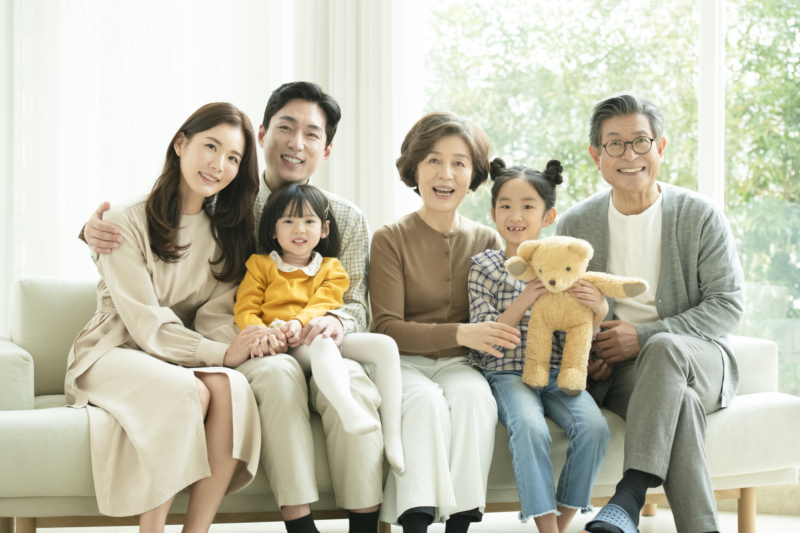Japan is far from being the only country whose rural areas are losing population due to young people moving to the larger cities, but it’s certainly one of the most acute examples. Even as the country’s population continues to fall, the Tokyo area still gains approximately 70,000 people per year, usually those in pursuit of a better job market and a wider variety of people and experiences. But a recent report from the Brand Research Institute suggests that life in Tokyo isn’t necessarily a happier life: in a ranking of the prefectures, Tokyo is almost perfectly in the middle. Read on for the full ranking, and for what it all means.
Measuring Happiness
The Brand Research Institute, a marketing strategy group focused on regional areas, released its second annual “Regional SDGs” (Sustainable Development Goals) report, which included its happiness rankings. Happiness is an extremely difficult thing to measure and understandably varies from person to person, so the researchers simply asked each respondent how happy they were (the precise wording was “あなたは幸せですか?”(Anata wa shiawase desu ka?), with 幸せ (shiawase) denoting deeper contentment rather than a transient day-to-day cheerfulness). The respondents could choose between “Very happy,” “Rather happy,” “Neither happy nor unhappy,” “Not very happy,” and “Not at all happy,” and these were translated numerically to 100, 75, 30, 25, and 0 points.

24.5% of the country describe themselves as “Very happy” and a further 36.4% as “Rather happy,” adding up to 60.9%. This is largely due to the elderly, 73% of whom were satisfied; every other age group was below the 60% mark.
There was a clear geographic component to this as well. Five of Kyushu’s seven prefectures placed in the top 14 in the Happiness Index (the average of the 100-75-50-25-0 scale described earlier). Miyazaki was at the top in first place (with a score of 74.0), Oita was third, Kumamoto was ninth, Kagoshima was eleventh, and Fukuoka was fourteenth. The Hokuriku region did well too, with Fukui, Ishikawa, and Toyama all scoring in the top 10.
Meanwhile, five of the six Tohoku prefectures placed in the bottom 10, all scoring below 63.7 on the Happiness Index. You can see the complete data by hovering over each prefecture in the map below.
To be fair, you shouldn’t read too much into the specific rankings. Their method of asking about 340 respondents per prefecture leaves a margin of error of 4.5-5% on either side, which is quite substantial given how the differences between the scores are quite small. It may be a genuine trend that Kyushu is more jovial while Tohoku is slightly glummer, but if your one prefecture is noticeably above or below its neighbors, you can probably chalk it up to chance. And you certainly shouldn’t pack your bags and move across the country just in search of a few more happiness points!
Money Can’t Buy Happiness, So What Can?
Even though there are clear geographical patterns in the happiness map, it’s not clear what might be causing them. It’s not income—the urban areas of Tokyo, Nagoya, and Osaka earn the most, and if anything, the happiest prefectures rank toward the bottom of the income ranking (although this doesn’t apply to the Tohoku region, which is on the lower end in both metrics).
Getting less sunlight might have an effect on your happiness, but there’s no pattern here either (interestingly, it’s Central Japan that gets the most sunlight!). Obviously, the south is generally warmer than the north, but the Sea of Japan coast seems upbeat despite its chilliness.

The other data included in the report (of which only a small fraction is available to the public) might provide an answer. Miyazaki was the happiest prefecture for both editions of the survey, but respondents there reported being more likely than average to have financial concerns (income, savings, debt). They were, though, some of the least likely to fret about personal matters and relationships (loneliness, shut-ins, domestic violence).
While just a single data point, this suggests that strong personal relationships might impact happiness more than money, a conclusion reinforced by plenty of social-science research. So perhaps put down the packing boxes—no need to move to Miyazaki just yet!—and focus on the people around you.
Title image credit: PanKR / PIXTA
If you want to give feedback on any of our articles, you have an idea that you’d really like to see come to life, or you just have a question on Japan, hit us up on our Facebook!
The information in this article is accurate at the time of publication.

